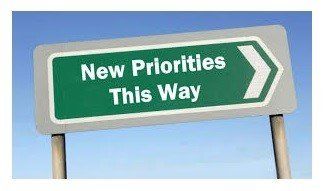What is a Reward Strategy
Jane Baalam
May 10, 2023
So as previously mentioned, it’s a good idea to get a reward strategy in place. But just to be clear, what we are talking about here is a plan that outlines your approach to compensation and benefits for your employees. It’s a bespoke plan for your business, because generally every business is different; in size, location, culture, stage of development and objectives. So of course it needs to be specific to your needs.
Typically a strategy will include the following elements:
Your philosophy: this sets out your overall approach to pay and rewards. It outlines the guiding principles you will follow when making reward decisions, such as if you will pay for performance, how your reward structure will be developed, your approach to internal equity, and external competitiveness, and, how it fits with your culture. It should have clear messages about how it aligns with your values.
Job evaluation and grading: Job evaluation is the process of assessing the value of different roles within the organization and assigning them to hierarchy on their relative importance. This can then be used to determine your optimal grading structure. It can also be used to highlight things like career paths, development needs, gaps in your organisation structure. It tells you where jobs are similar and where they are different. It can help form the underpinning business case for pay differences.
Salary structure: The salary structure sets out the pay ranges for different job grades or bands, taking into account factors such as your philosophy, external market data, and internal equity considerations. Different approaches will drive different behaviours. (I always say there are only 9 ways to pay people and everything else is a variation on one of those, but don’t tell anyone I said that!).
Incentive plans: Incentive provide additional rewards to employees based on their performance, such as bonuses, profit sharing, or equity participation. If this is your aim, make sure you get the right approach in place to support your strategy. Make sure it has the right focus to drive your desired outcomes.
Benefits packages: Benefits packages include non-cash rewards that support employees' physical, mental, and financial well-being, such as health insurance, retirement plans, and paid time off. Different approaches are generally around things like flexible or voluntary benefits schemes and what is favoured in different sectors. But they often end up being a decision from management on what they think is best for their employees. If your philosophy is to have an engaged workforce, you will need to get them engaged with your benefits approach (and all the other elements, but benefits does tend to be the one where employees are not asked enough about what they want).
Recognition and rewards: Recognition and rewards approaches are designed to acknowledge and celebrate employee achievements and contributions, and may include things like awards, public recognition, or special privileges such as days off or lunches.
Communication and transparency: Communication and transparency are critical components of a successful reward strategy - we’re not good at talking about any of this in the UK (one of the reasons why we have speech bubbles in our logo is because communication is so important). Your strategy should consider how you will communicate your approach and your plans to employees clearly and transparently.
And finally, a reward strategy should be reviewed and updated regularly. Just like any other strategy.
In summary, a reward strategy is a comprehensive plan that outlines how you will attract, retain, and motivate your employees using compensation and benefits. The strategy should be aligned with your objectives and values, and should be communicated clearly and transparently to employees to build trust and engagement.
Sounds simple of course, but if you’re struggling to know where to start – just give us a call. Watch out for our next piece on who should be involved in setting the strategy, after all, it belongs to the business, not just to HR.









